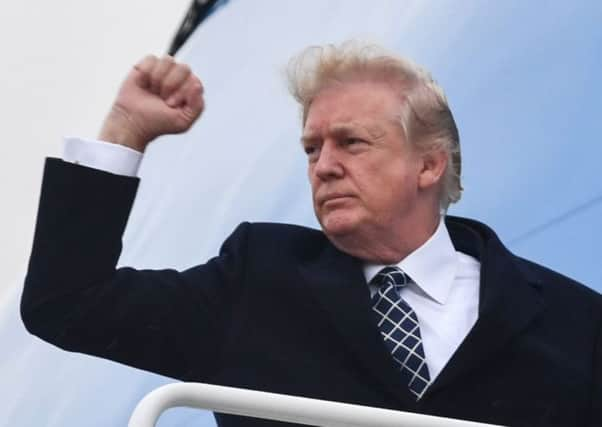Leader comment: A sinister theory about Donald Trump and the far-right


Piers Morgan, who interviewed the US President, tweeted Trump had “publicly apologised for retweeting far-right group Britain First”. However what Trump actually said was: “If you’re telling me they’re horrible people, horrible racist people, I would certainly apologise, if you’d like me to do that.” He then added: “I know nothing about them.”
He sounds apologetic, but narrowly avoids actually apologising. It might seem like nit-picking to point this out, but imagine if a UK politician had retweeted David Duke, the former leader of the Ku Klux Klan, then only offered to say sorry after weeks had gone by.
Advertisement
Hide AdAdvertisement
Hide AdTrump’s insistence that he doesn’t know anything about Britain First might sound plausible. But, given Theresa May told him in November he was “wrong” to retweet their misinformation, it’s strange that he still professes ignorance. And he didn’t simply ignore Mrs May, he publicly rebuked her for chiding him. Now, consider Trump’s response in 2016 to being asked to publicly condemn the KKK and Duke, after the latter endorsed his presidential bid: “I don’t know anything about David Duke. Okay? I don’t know anything about what you’re even talking about with white supremacy or white supremacists … you wouldn’t want me to condemn a group that I know nothing about.”
Also, after white supremacist protesters rallied in Charlottesville, Virginia, last year and an anti-racism counter-protester was killed when a car ploughed into a crowd, Trump said there were some “very fine people” among the protesters, even though they included KKK members and armed militia. Trump was criticised by leading Republicans for failing to condemn the white supremacists explicitly – Marco Rubio felt the need to tweet there was “nothing patriotic about Nazis” – and the White House eventually issued a statement doing so.
Taken together, Trump’s repeated reticence about condemning the far-right seems like a deliberate tactic. He makes remarks that suggest he supports them, then belatedly recants in a half-hearted way. The far-right are encouraged, normalised, and then decent people are placated. It’s almost as if we are being lulled into a sinister new mindset.
